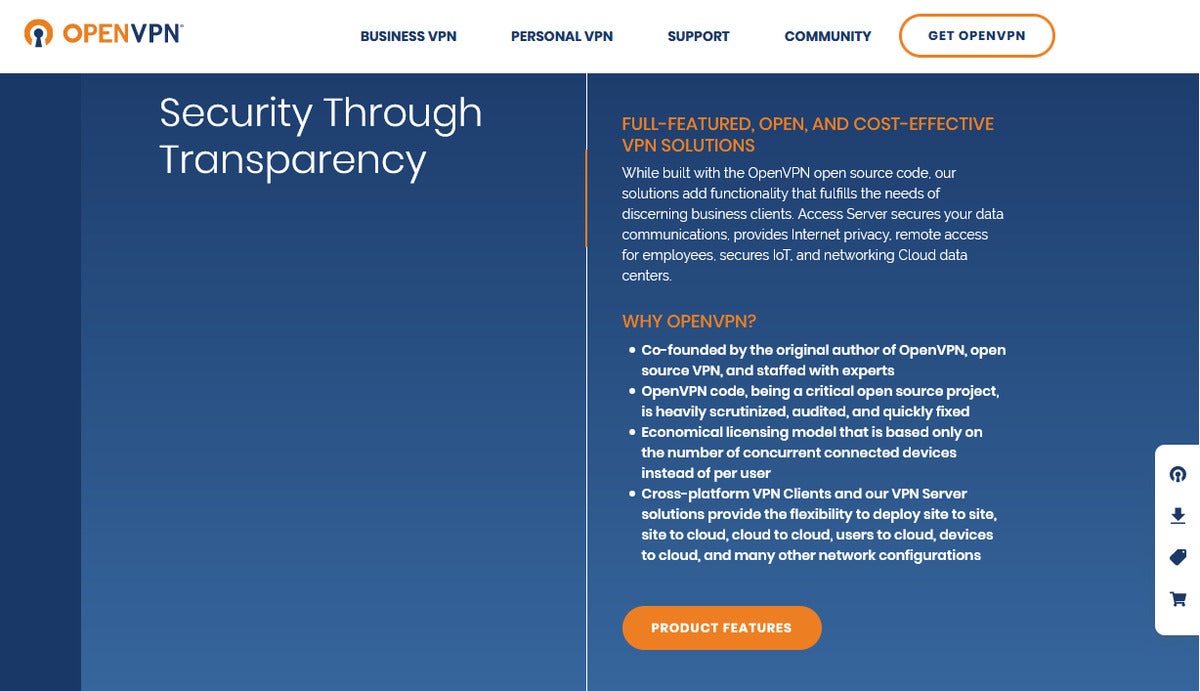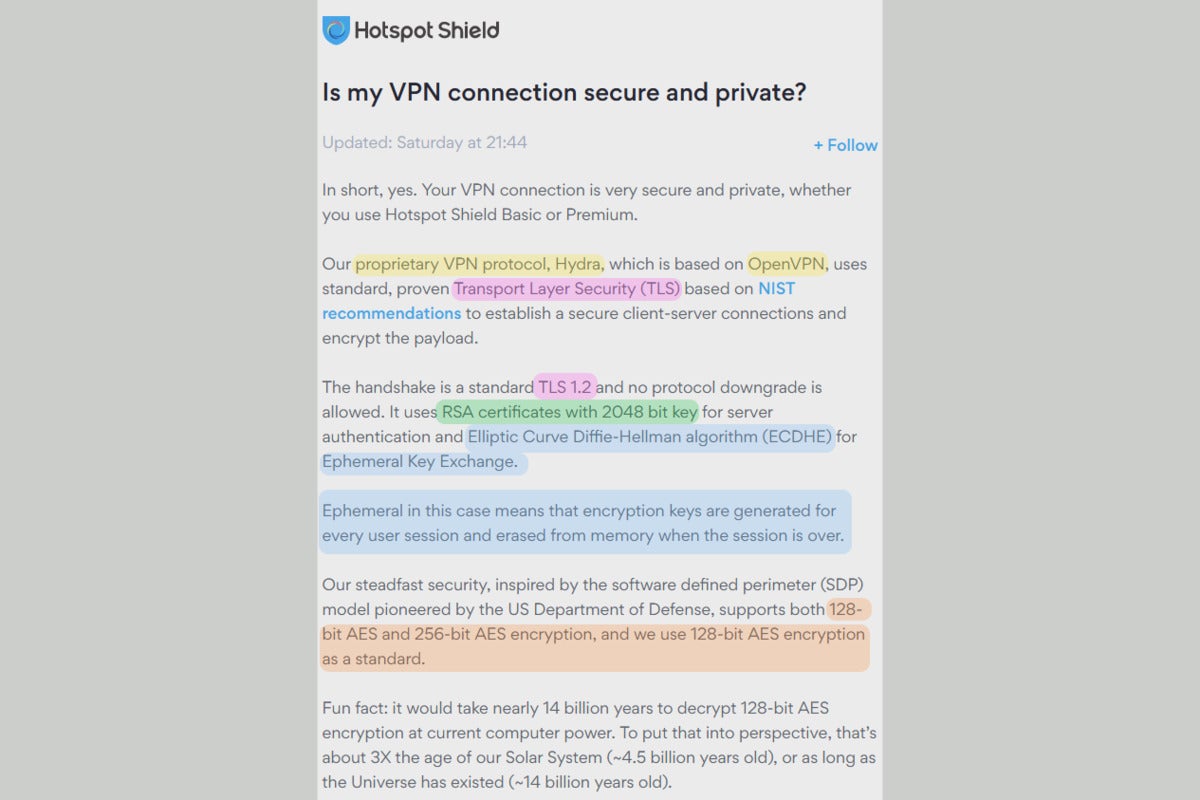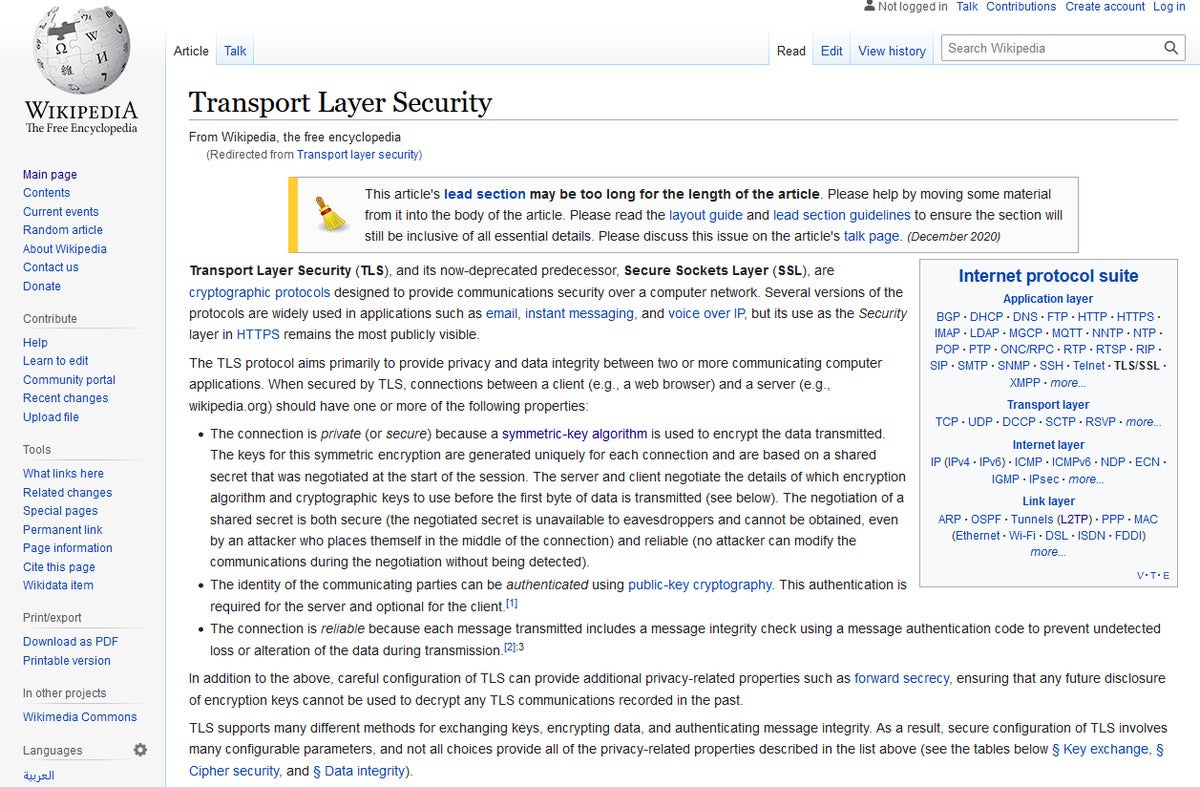Is your VPN secure? How to make sense of VPN encryption - grossmucas1961
Virtual private networks use slick marketing footing to enamor potential users, but you bum easily get tangled up when trying to pick it all apart. The language describing encryption methods is thick with acronyms and technical jargon, so searching cute phrases like "military-grade encryption" usually turns awake more than questions than answers.
But while the inside information of encoding can initially Be confusing, things become pretty clear erstwhile you know how to separate the information. Concepts the likes of TLS, RSA certificates, keys, AES encoding, and the likes of will seem outlying less foreign, and it'll constitute a snap to evaluate how applaudable a VPN is of your attention. Here's how to get there.
How VPN encryption works
Generally speaking, encoding is the process of converting data into code (an act titled encoding), which can then only be decoded by an sanctioned party. When your data processor connects to a VPN, a multi-step encryption process should take place. The degree of security in each of those steps depends on the protocols put-upon. Each protocol handles elements like assay-mark, key exchange, and encryption of the settled connection in different manners.
You can usually break down modern VPN encryption protocols into these foursome parts:
- How the connection first begins (the "handshake")
- How the connection generates the piece of code ("the key") used to encrypt and decrypt data during the session (aka the key exchange)
- How long the encryption keys persist
- The encoding method victimized to protect the established connection
The protocols supported by a given VPN indicate the general level of encryption strength, but they can be configured to taste. Consequently, VPN services arse use the cookie-cutter protocols but provide differing levels of security. One company may hew closer to industry defaults to boast faster speeds, while some other might increase the key lengths/sizes used for encoding to maximize security.
How to untangle the specifics of VPN encryption
 PCWorld
PCWorld Many VPNs support OpenVPN, a popular open-source communications protocol known for its high level of security measures.
Start by determining which protocols a special VPN service supports. Currently, the industry favors three for their high security: OpenVPN, IKev2/IPSec, and Wireguard. You may also fancy proprietary riffs on known protocols, equally well as slower or less secure ones comparable SoftEther, SSTP, and L2TP/IPSec. PPTP is rare these days, as it's an old protocol and no longer provides adequate auspices.
Next, excavate the inside information of how the VPN has configured its chosen protocols. Most services offer a nuts-and-bolts explanation in support pages, an FAQ, or blog posts. You should meet damage like "RSA certificates" and "Elliptic Curve Diffie Hellman protocol" here. Online searching will clear up whatever terms you're not familiar.
At length, take all the jargon that you've found and weigh it against industry standards. Again, online searching will help you substitute any knowledge gaps. Be wary of VPNs that don't take on current industry defaults (e.g., 2048-bit keys for RSA certificates and 128-bit AES encryption). A VPN's level of encryption should line finished with its merchandising claims, as well—a supplier that trumpets the iron-togged security but uses PPTP or even L2TP/IPSec gives ground for doubt.
As an example, here's how we would go about renderin HotSpot Shield VPN's explanation of its encryption methods:
 PCWorld
PCWorld In that explanation of HotSpot Shell's encoding configuration, the brightly colored highlights are what you need to figure unfashionable.
First, we'd nam supported VPN protocols. The operative idiom here is "proprietary communications protocol supported OpenVPN." That tells us that this company has taken matchless of the most secure VPN protocols and put their own spin thereon. You'll have to trustingness that it has implemented those changes considerably, since the code is not publicly available to review. (In contrast, OpenVPN is an barefaced-root protocol.)
Next, we would puzzle out what function the remaining terms represent within the OpenVPN protocol. With a bit of piece of work, it becomes clear that:
- TLS 1.2 relates to protection at first of a connection;
- RSA certificates are division of that encryption mental process;
- The Elliptic Trend Diffie Hellman algorithm then dictates how key exchange happens;
- That key exchange is an ephemeral exchange;
- The connectedness switches all over to 128-scra AES encoding afterward. You can likewise configure your connection to instead use 256-bit AES encryption.
 PCWorld
PCWorld Wikipedia has explanations for most encoding-related terms, just it can also turn into a rabbit hole in which you spend gobs of time unpacking the highly technical language.
To determine whether operating theater not HotSpot Buckler VPN has made smart choices for its setup, more research supplies further context:
- TLS 1.2: OpenVPN uses Transport Layer Security measur, operating theater TLS, to secure the connection when IT begins. Version 1.2 is well thought out the tokenish default by experts. A newer, more secure version 1.3 exists as cured but has not yet been American Samoa widely adopted.
- RSA certificates with 2048-bit key: TLS certificates swear on the RSA algorithm to keep goin data infection steady. The lower limit key length recommended these days is 2048-bit. Or s VPNs use a longer key length (4096-chip), but the tradeoff is that it's slower.
- Elliptic Curve Diffie Hellman algorithm: This communications protocol dictates how the tack together of information (the key) accustomed encrypt and decrypt data routed through the VPN is generated. Like the RSA algorithm, ECDH relies on irregular public-private cardinal pairs but has different vulnerabilities. Its use following that of RSA certificates helps palliate those weaknesses.
- Ephemeral key commute: Unparalleled keys are generated each session and so discarded, which reduces the chance of a third party obtaining the keys and thus decrypting your data.
- 128-bit AES and 256-bit AES encryption: 256-bit AES encoding is Sir Thomas More complex than the 128-bit diverseness, which provides more protection against bestial-force attacks, simply it's besides slower. Aside choosing 128-bit AES encoding as the default option for established connections only allowing 256-tur as an optional configuration, Hot spot Shield holds to industry standards while still big users the choice to addition their level of security.
You would have to test a VPN to farther swear it's valuable your time, but between online reviews and this search, you'll go bad into the process well-informed. (In the particularised pillowcase of HotSpot Shield, we've already done the reviewing for you.)
Overall, existence able to perform this kinda check ensures that you rump pass happening any VPNs that father't fulfill your standards.
Why so complex?
Picking these inside information separated can take some time, which may be more than most people want to do. You buns bypass this work by sticking to known services that are well-known and recommended by many experts in the battlefield. We have our possess list of VPNs that we've reviewed that you can point of reference, which includes providers care Mullvad, Windscribe, and HotSpot Shield. Opinions run away upright connected forums and sites like Reddit, too.
Source: https://www.pcworld.com/article/394243/is-your-vpn-secure-how-to-make-sense-of-vpn-encryption.html
Posted by: grossmucas1961.blogspot.com


0 Response to "Is your VPN secure? How to make sense of VPN encryption - grossmucas1961"
Post a Comment